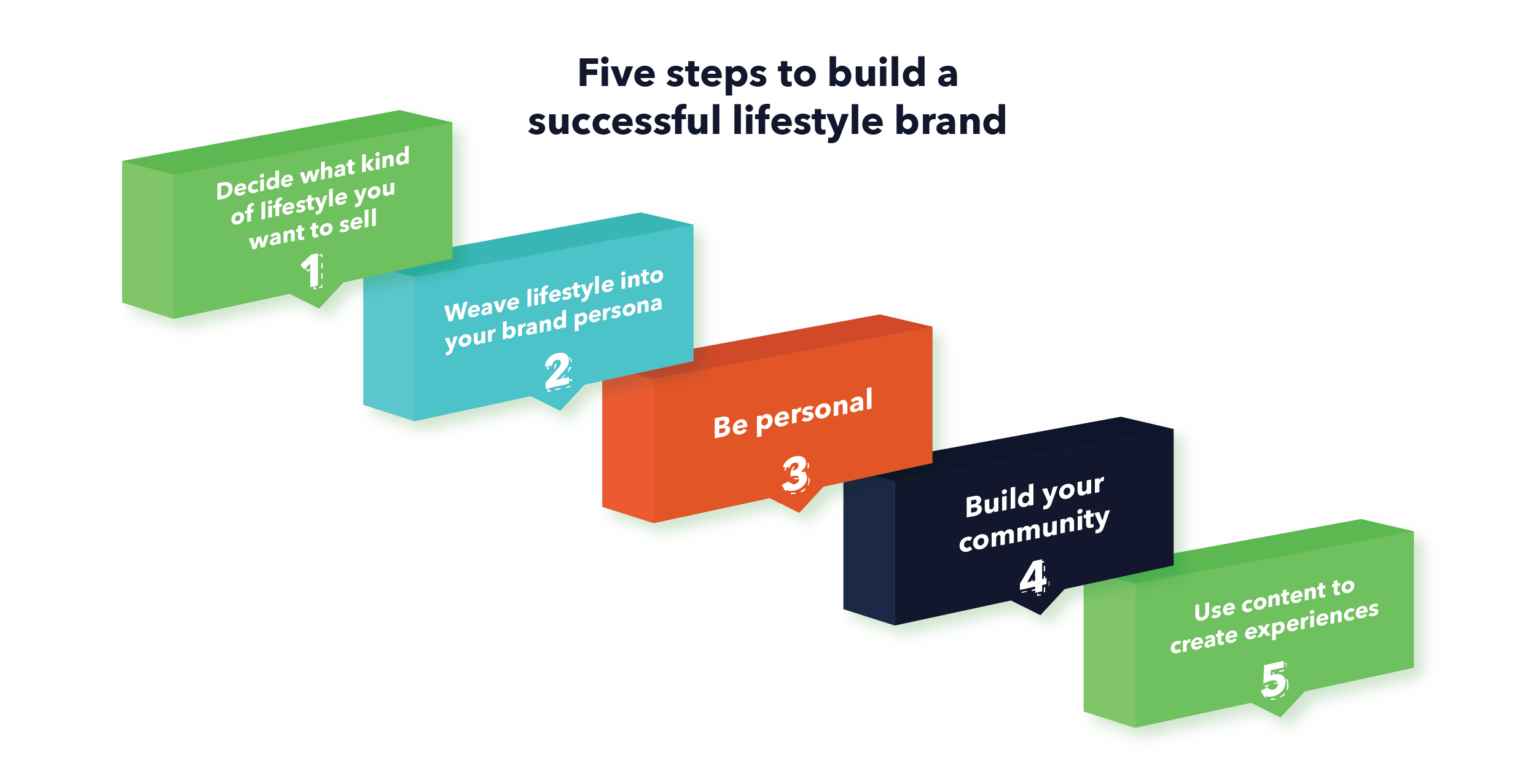Table of Contents
Share
Unlock the secrets of building a lifestyle brand that resonates deeply in 2025.
In 2025, building a lifestyle brand is about more than selling products—it’s about creating a movement. Consumers today want brands that align with their values, foster communities, and deliver experiences that feel personal and authentic.
Whether it’s a commitment to sustainability, inclusivity, or fostering connection, lifestyle brands have become a cornerstone of modern marketing.
In this guide, we’ll define what a lifestyle brand is in 2025, explore the evolving role of lifestyle branding and provide actionable strategies and real-world examples to help your business thrive.
What is a lifestyle brand?
Lifestyle brands create the vision and feelings of the specific lifestyle their consumers aspire to.
A lifestyle brand doesn’t just sell products—it sells identity. It’s about connecting with your audience on an emotional level and aligning your brand with the values, aspirations, and passions of your customers.
In recent years, brands like Patagonia and Glossier have redefined what it means to be a lifestyle brand. By championing environmental activism and inclusive beauty, respectively, they’ve shown how aligning with a cause can create deeper connections and drive long-term loyalty.
Importantly, lifestyle brands tell stories that connect with consumers to form a meaningful connection.
The ultimate goal of a lifestyle brand is that its products contribute to the definition of its consumers’ way of life.
Characteristics of a lifestyle brand.
Lifestyle brands have common characteristics — does your brand tick these boxes?
- They connect with a niche audience — and know what makes that audience tick.
- They have a devoted, highly engaged following.
- They answer an emotional desire.
- They are respected and trusted by their target audience, and inspire loyalty.
- Most of their content is about more than their products.
Examples of lifestyle brands
From apparel to tech, the best lifestyle brands transcend their products. Here’s a look at some standout examples:
- Peloton: More than a fitness company, Peloton fosters a global community of fitness enthusiasts, united by shared goals and passions.
- Oatly: This plant-based milk brand connects with eco-conscious consumers, turning sustainability into a cultural conversation.
- Allbirds: Combining style with sustainability, Allbirds has built a loyal following by prioritizing ethical sourcing and transparent business practices.
How to create a lifestyle brand
1. Start With a Clear Purpose
Your brand’s purpose is your North Star. What does your brand stand for? What change do you want to see in the world? Brands like Patagonia succeed because their purpose—protecting the environment—drives every decision.
Read our article on How To Build a Purpose Driven Ecommerce Brand.
2. Foster Community
Lifestyle brands thrive on connection. Use platforms like Instagram, Pinterest, and TikTok to create spaces where your customers can share their experiences, interact with your brand, and connect with each other.
Check out: A Lifestyle Brand’s Guide to Social Media
3. Leverage Influencer Marketing
Collaborate with influencers who align with your brand values. Authentic partnerships can amplify your message and make your lifestyle brand aspirational.
Read: Influencer Marketing for Lifestyle Brands
4. Embrace Storytelling
Every lifestyle brand has a story. Use compelling content—blogs, videos, user-generated content, and social posts—to share your mission, values, and vision.
Learn how modern trends like storytelling and personalization are shaping consumer expectations: Top Ecommerce Website Trends to Watch in 2025.

Defining the audience
To resonate as a lifestyle brand, you must deeply understand your audience. Use tools like behavioral segmentation and customer personas to identify their:
- Values and aspirations.
- Preferred communication styles.
- Interests and online behaviors.
For instance, a sustainable fashion brand’s audience may value eco-friendly practices, transparency, and fair trade. Use these insights to craft messaging that feels personal and meaningful.
Pro Tip: Use tools like Klaviyo to segment your audience based on purchase history, engagement, and preferences. Learn more in the Guide to Ecommerce Marketing Email.
Examples of aligning products with a lifestyle
Products must reinforce the lifestyle your brand promotes.
For example:
- A fitness apparel brand can release eco-friendly workout gear to align with active, sustainable living.
- A tech company like Apple integrates sleek design and ease of use to align with a creative, on-the-go lifestyle.
Consider cross-promoting your products with content that reflects these values, like blog posts, videos, or interactive tools.
Conclusion: building a lifestyle brand in 2025
Lifestyle brands are more than businesses—they’re communities. By aligning your purpose with your audience’s values and aspirations, you can build a brand that transcends transactions and fosters loyalty.
Ready to build a lifestyle brand that inspires and converts?
Contact LimeLight Marketing to start creating a strategy that transforms your business into a movement.
Be bold. Be authentic. Be real. There is great power in great storytelling.


